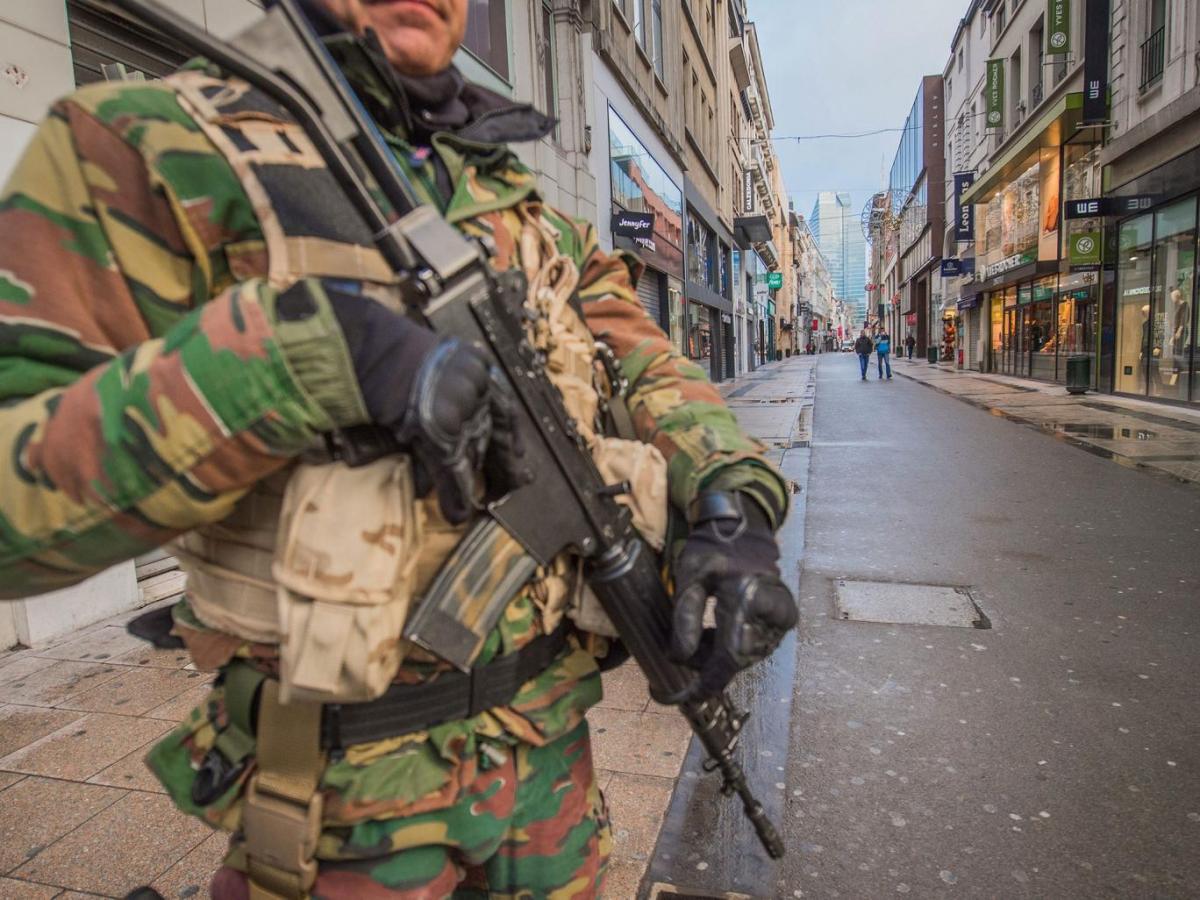Teaching ground to a halt in Los Angeles this week, after all public schools in the area were closed due to a threat made via email, in which it was indicated that several schools were under threat of imminent attack. Ultimately, the threat turned out to be a hoax, but the severity of the LAPD’s reaction embodies a new culture of fear that has spread throughout many Western nations following last month’s attacks in Paris.
The widespread paranoia has spread like an evil plague, after the Paris attacks showed the world that we may not be as safe as we had assumed, even in our own neighbourhoods in cities of the West. Prior to this, whilst the regional strength of ISIS was not overlooked by the general public, the possibility of attacks of Western soil seemed like a mere fantasy of the Jihadi extremists, and not a genuine possibility. But the November attacks showed the world that even the simplest tasks, such as attending a football match or going for dinner as of a Friday evening, may not be as straightforward as we had previously believed.
Following the attacks, several cities have witnessed hyper-vigilant reactions to threats, which ultimately have not materialised. In Hanover, a few days after the Paris attacks, German authorities cancelled a football match between Germany and the Netherlands due to a last-minute threat which indicated that terrorists would target the match, as well as the city’s public transport system. Rumours spread across social media that an ambulance packed full of explosives have been found, and that arrests had been made by armed police within the city. In the end, the city remained peaceful; whether this can be attributed to the expertise of the German intelligence services is something we will never know, but it has transpired that no arrests were made, nor were any explosives uncovered.
In Brussels, unprecedented levels of military were deployed to the streets, after it was purportedly revealed that several terrorists were at large within the city, and were planning a Paris-style attack. The threat to Brussels was deemed to be “serious and immediate”, so much so that the city was placed on lockdown for four days. Undoubtedly, the Molenbleek district of the city was/is a hotbed for radicalisation and extremist tendencies, but the fact that the Brussels lockdown passed without incident must lead us to ask if the risk was exaggerated, amidst post-Paris paranoia.
These incidents, alongside developments from Los Angeles, display the level of fear Western authorities are dealing with as a result of the spread of terror, through the growth of ISIS. We read about global warfare every day in newspapers and on social media platforms, but the concept that we could be in the middle of it is a chilling thought, and one which is simply terrifying Westerners. Returning to the incident in Los Angeles, it has since transpired that authorities in New York were made aware of similar alleged plans at schools in the Big Apple, but quickly realised it was a hoax due to certain errors within the email. The fact that such errors were not noticed by their Californian counterparts illustrates that panic was able to cloud the judgement and rational thinking of a world-renowned intelligence service.
The problem faced at this point is a unique one; terrorist attacks which have occurred have generally been carried out by nationals, who have been radicalised overseas. The new “enemy within” is more difficult to both monitor and prevent, an additional factor which has instilled fear into Western citizens. Reports from inside Syria undoubtedly shock readers, but the concept of living amidst terrorist cells in Western Europe and the US puts people on edge, particularly in the wake of the widespread killing witnessed in Paris, a city which many tourists have visited and found themselves attached to. As a result, many were forced to accept the chilling reality that they could have been drinking outside Le Carillon bar when the attacks took place, or at the Bataclan theatre.
This plays directly into the hands of ISIS, who will thrive on causing fear within Western borders. ISIS, as any terrorist organisation would, recognise that fear equates to power, and the concept of their power spreading to European and American soil is music to their ears. Let us not overlook the fact that, on the grand scheme of things, ISIS is far from a militaristic superpower on the ground; they have no jets, their surface to air missiles are no match for coalition aircrafts and their weaponry is far from advanced. Therefore, the fact that, in spite of this, they have managed to spread fear throughout the Western world is an achievement in itself for the group. As well as this, it makes the propaganda released by the group seem more convincing than it otherwise would- promises to “liberate Istanbul” and “conquer Rome” would once have been brushed aside, but after the Paris attacks, many live in fear that such could be a reality we face.
The difficulty for authorities is preventing this spread, while still protecting their citizens. The necessary secrecy authorities must adopt in relation to these matters means that action such as the deployment of additional police officers or military personnel is likely to raise alarm that an attack is possible. Governments must work alongside the media in an attempt to prevent the spread of paranoia, as the press is often over-indulgent in their reporting of certain issues which may not even warrant reporting in the first place. Transparency is also key, and Governments should seek to keep citizens informed when possible, as well as working alongside police forces to reasonably identify genuine risks, and differentiate them from potential hoaxes.
We, as citizens, must not live in the state of fear craved by the extremists- ultimately this allows them the most precious victory of all; disruption of the Western way of life. We must continue to enjoy the beautiful cities we are blessed to live in, and make the most of opportunities to travel to others. While vigilance is wise, we must continue to defy terrorists by enjoying the freedom we have, one which they loathe and seek to destroy. It is fundamental to focus on winning the mental battle against ISIS; we are mentally stronger than the enemy and overwhelmingly more powerful. Let us use their evil to form new alliances, stand side by side and defy their most hateful objectives.

